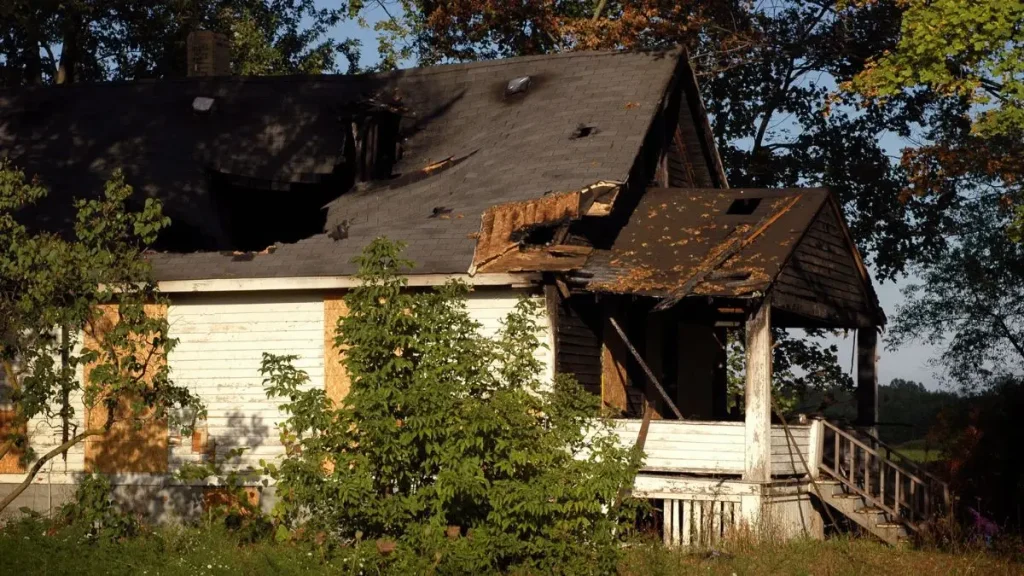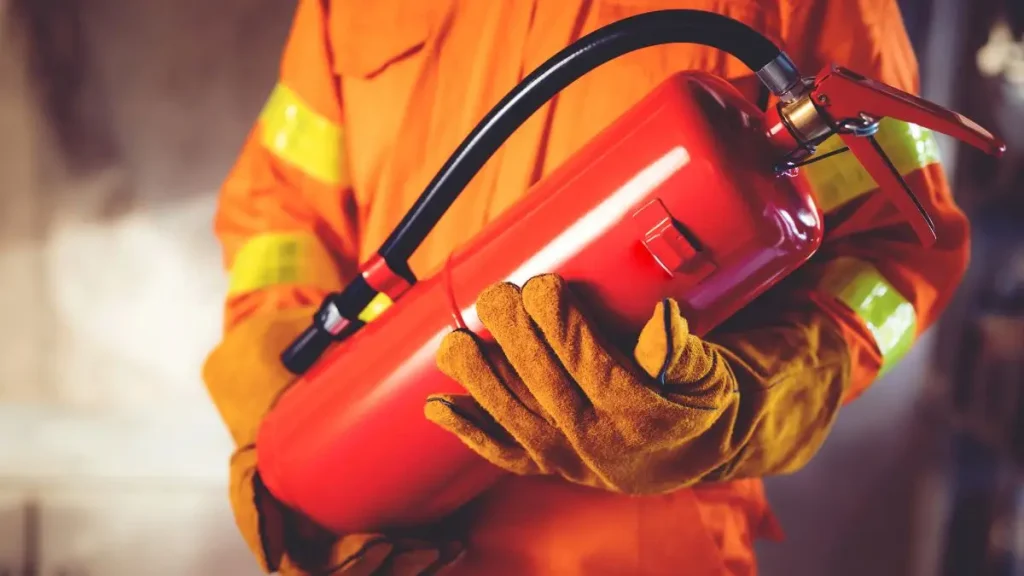Michigan Home Goes Up in Flames After Propane Torch Sparks Fire
I can’t stop thinking about how fast things can go wrong—especially when you’re just trying to take care of your yard.
That’s exactly what happened in Salem Township this week. A homeowner was using a propane torch to burn off weeds under his deck. Seems harmless, right? Just another summer chore. But within minutes, the flames jumped from dry brush to a nearby bush, then crawled up the siding and tore through the entire house.
Everything was gone.
No injuries, thankfully. The family and their pets made it out safely. But their home? A total loss.
Firefighters rushed in from four counties—Washtenaw, Wayne, Oakland, and Livingston. And even then, they had to haul in water from nearly a mile away because there weren’t any fire hydrants nearby.
This wasn’t just a small backyard accident. It was a full-scale emergency.
And here’s the thing: using propane torches for weed control is pretty common in Michigan. But after hearing what happened here, I think a lot of us need to seriously rethink how we handle basic outdoor tasks—especially with open flame.
What Really Happened That Day in Salem Township?
I read through the full report on WXYZ, and honestly, it’s chilling how fast this fire took over.
The homeowner just wanted to get rid of some weeds using a propane torch—something many of us have probably done or thought about doing. But what happened next is what you need to hear.
He was working near the back deck when the flame caught dry vegetation. That flame jumped to a nearby bush, and before he even realized what was happening, it had climbed up the vinyl siding and made its way inside the house.
You might think you’d have time to react in a situation like that, but the fire department got the 911 call around 2:39 p.m., and by then, it was already too late. The entire structure was gone.
If you’ve ever worked with fire around your yard—even for five minutes—this is a wake-up call.
How a Backyard Flame Became a Full-Blown House Fire?

I know it sounds dramatic, but this really was a case of “from weeds to walls in seconds.” And if you’re using fire around your home, this is the kind of thing you can’t afford to ignore.
Let me walk you through how it spiraled:
The torch lit some weeds under the deck. Those weeds sparked a bush next to the house. That bush scorched the vinyl siding—a highly flammable material. Then the fire crawled inside the home and consumed everything.
It wasn’t just bad luck—it was a perfect storm. The siding gave the fire an easy path, and the homeowner thought the flame was out. He even went back to the front yard before realizing what had happened.
If you’re using flame-based tools, don’t trust your instincts alone. Fire doesn’t wait.
Fires can spread faster than expected—like what happened in this Fresno incident where a home under construction was quickly consumed and impacted nearby property.
The Smart Water System That Failed When It Was Needed Most
I get it—you want your home to be smart and efficient. But sometimes, tech can let you down when it matters most.
The homeowner later said his water system was controlled via Wi-Fi, and when the fire started, he couldn’t get it to work.
Now think about that for a second. You’ve got a fire inching closer to your home, and your connected system won’t respond?
That’s why I always say: digital systems need manual backups.
A garden hose. A fire extinguisher. A basic water bucket.
You might think your setup is “smart,” but if it can’t save your house, is it really that smart?
If you’ve got any automated systems at home, double-check how they work during an emergency—right now.
Similar challenges were faced in this Harnett County fire where firefighters had to act quickly to stop the spread between closely built homes.
Fire Crews Had to Truck in Water—Here’s Why That Matters to You
I was shocked to learn that the area didn’t even have fire hydrants nearby. That’s something most of us don’t think about until it’s too late.
When the fire got out of control, firefighters from four counties showed up—Washtenaw, Wayne, Oakland, and Livingston. That’s a massive response. But even they faced a serious challenge: no local water source.
They had to pipe water from 6 Mile Road just to fight the fire effectively.
Now, here’s what that means for you:
- If you live in a rural or semi-rural area, check your access to emergency water.
- Don’t assume the fire department will have everything instantly ready.
- You might be on your own for those first critical minutes.
Preparedness isn’t just about alarms and apps. It’s about knowing your environment and its limitations.
We recently came across a safety thread on WhatsApp discussing rural fire preparedness and what to do when hydrants aren’t nearby—really useful stuff if you live in an area like this.
Are You Using a Propane Torch for Weeds? You’re Not Alone—but You Might Be at Risk
Propane torches are weirdly popular for weed control because they seem like a clean alternative to pesticides.
That’s exactly why the homeowner said he used one—he didn’t want chemicals around his yard.
And yeah, I respect that. But here’s the truth: flames are far more dangerous than weed killer.
You may not think so, but:
- Dry brush catches fast
- Flames crawl up structures quicker than you’d believe
- Even a single moment of inattention can be the end
So if you’re thinking about grabbing that propane torch this weekend, pause.
Ask yourself: Is this the safest option I have?
And if you still use it, don’t leave it unattended—not even for a minute.
Have you ever used fire in your yard work? What precautions do you take, if any? Share your experience in the comments—your tip might help someone else avoid a disaster.
Fire Chief Rachwal’s Safety Tips You Can’t Ignore This Summer

Chief James Rachwal didn’t mince words when he warned homeowners: “open flame can get away from you really, really quick.” Here’s what he suggests if you plan to use a propane torch—or anything flammable—this summer:
- Stay clear of structures and dry foliage. Keep the torch well away from houses, decks, dried-out plants, and mulch.
- Never leave a flame unattended. Even stepping away for a minute can allow fire to spread — that’s what happened here.
- Always have an extinguisher or water source nearby. A fire extinguisher, hose, or bucket of water could be the difference between control and catastrophe.
These are actionable, expert-backed precautions that could literally save their homes—and lives.
It’s stories like this and the Tennessee home fire—where residents weren’t even present—that show just how unpredictable fire can be.
Safer Alternatives to Torch Weed Control—Your Summer Checklist
Looking for safer options this summer? Here are expert-recommended alternatives:
- Boiling water or vinegar — safe, effective, eco-friendly.
- Mechanical removal — hoeing, pulling, with gloves and kneepads.
- Flame-free herbicides — low toxicity if used correctly.
- Solar weeders — focus the sun to kill weeds, no flame involved.
According to NFPA, residential torch-related fires spike each summer.
Final Thoughts
This incident in Salem Township isn’t just another house fire story—it’s a real-world reminder of how quickly everyday tasks can turn dangerous, especially in dry summer conditions.
The homeowner didn’t act recklessly. He avoided pesticides, chose what seemed like a cleaner solution, and yet still lost everything. That tells you one thing: fire doesn’t care about good intentions.
From the malfunctioning smart water system to the lack of nearby hydrants, this fire exposed the hidden risks many homeowners never think about—until it’s too late.
So what’s the takeaway?
If you’re using open flame for yard work—even just for weeds—pause and ask:
- Am I near anything flammable (siding, brush, mulch)?
- Do I have a working extinguisher or hose within reach?
- Have I checked local fire restrictions or burn bans?
Because it only takes one small flame and a few dry leaves to change your life.
Stay safe this summer. Use fire wisely—or better yet, skip it altogether when you can. Your home, your family, and your peace of mind are worth far more than a few burned weeds.
For more real fire stories, home safety updates, and prevention tips, feel free to check out our website Build Like New.
Disclaimer: This article is for informational purposes only and is based on publicly available news sources. Always follow your local fire safety regulations and consult with fire authorities before using open flames for yard work. The author is not liable for any actions taken based on this content.


